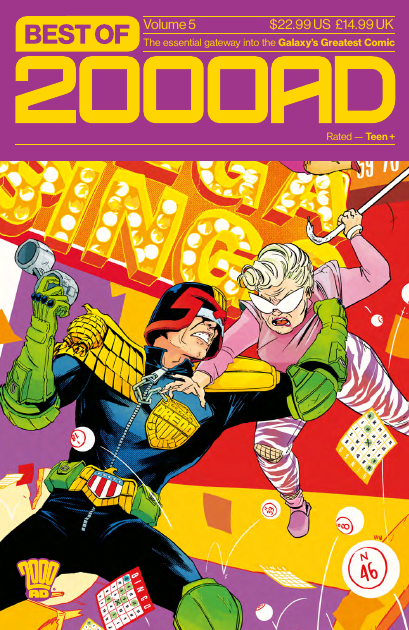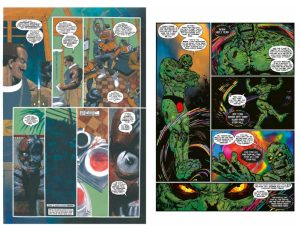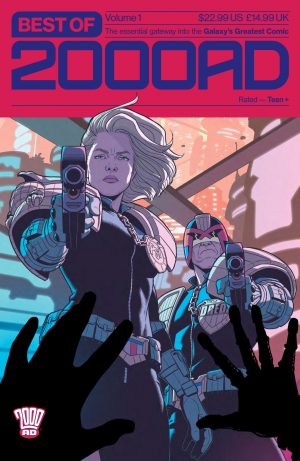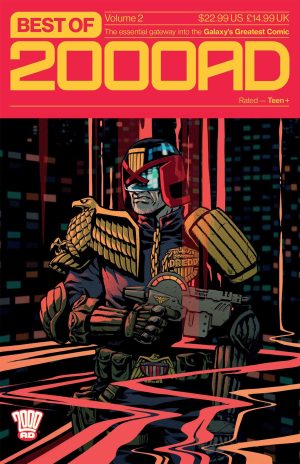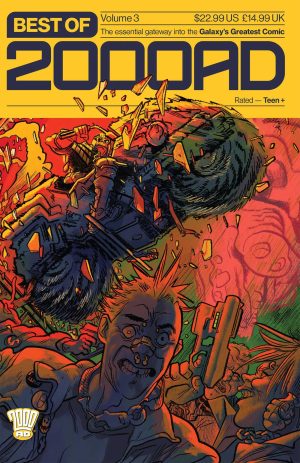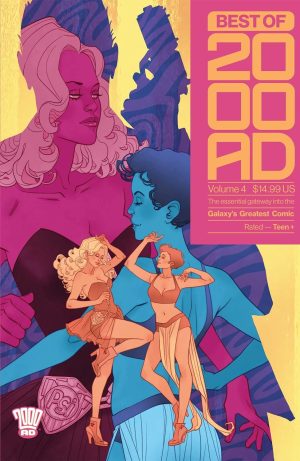Review by Frank Plowright
Just look at the list of creators. What a line-up to pull from the vaults!
That said, in many cases you’re getting people in their raw form when starting out, rather than the fully blossomed artist. Give Sean Phillips or Frank Quitely the opportunity to draw their 1990s strips Devlin Waugh and Missionary Man today and they’d take a very different approach. You can see the artists they’d become, but here both have a lot to learn about telling a story.
More so than earlier editions this is a full anthology rather than shorter pieces slotted around one large meaty chunk of a single feature. The only inclusion not to have previously seen print in some form of graphic novel is ‘Tribal Memories’ by Peter Milligan and Tony Wright (under the alias Riot). It’s both early work from Milligan and rather a contemplative piece for the 2000AD of the late 1980s, but built around a clever idea. Humanity has colonised the stars, but personalities are entirely compromised, created from a fusion of purchased memories. Mo Robinson trades in memories and he’s heard tell of a Maasai warrior who survived cryogenics and is the sole human with untainted memory. Milligan packs pithy dialogue, comments on colonialism and unpredictability into twenty pages, and it still makes for uncomfortable reading. Wright’s art is sketchy and elusive, good with exteriors, but claustrophobic indoors.
Zombo’s introduction is the longest story, written by Al Ewing around Henry Flint’s idea of an old-fashioned 2000AD serial where a group of humans is whittled down to almost zero on a hostile planet. The experimental monstrosity of Zombo is their only hope. However, by starting at the beginning we’re supplied with the weakest Zombo story, the one before Ewing hit on the infusion of cultural satire elevating the concept.
As with the art, John Smith’s Devlin Waugh and Gordon Rennie’s Missionary Man are both starting points. Missionary Man is an effective Spaghetti Western homage that never develops further, while Devlin Waugh oozes camp personality to compensate for a meandering plot in what’s been available in plenty of other collections, beginning with Swimming in Blood.
In the opening story Judge Dredd is centre stage as Rob Williams runs a homage of classic Dredd with the hateful super rich buying exclusivity and their hubris having deadly consequences. Chris Weston relishes the villains and the flourishes. In the 1980s reprint it’s a caricature of artist Cam Kennedy lost in Mega-City One after being cheated by a company. It’s touching and funny, with writers John Wagner and Alan Grant ensuring Dredd’s appearance is brief, but pivotal. It’s also available as the title strip in Judge Dredd: The Art of Kenny Who.
As ever, Jamie Delano and Alan Davis have D.R. and Quinch offer inappropriate problem solving to end the package. More so than previous collections, this selection is later creative giants starting out rather than at their peak, so while still good value, it’s not as creatively fulfilling.
